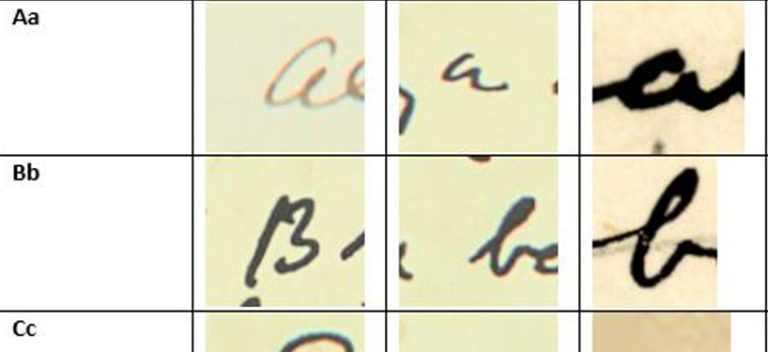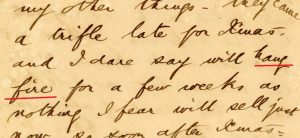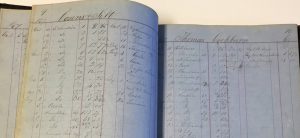Over the past couple of years, we at Homer Watson House & Gallery have been transcribing the Watson family’s letters and correspondences in order to make them more accessible. During our transcription efforts, we found that Homer Watson had several turns of phrase and quirks in his writing that were unique to him, which we have dubbed “Homerisms.”
In our earlier post about sourcing historical slang, we discussed how interpreting handwriting is one of the toughest parts of transcription. Like everyone, Homer’s penmanship was unique to him, and it took some time for us to get used to his hand. To help us with this, we created a “Homer Alphabet” to break down how he wrote his letters.
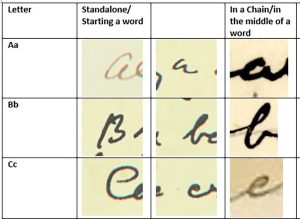
When creating this alphabet, we noticed that Homer literally crossed his “t”s and dotted his “i”s in a bit of an unusual way. These crosses and dots often appear part way through the word or look slightly disconnected!
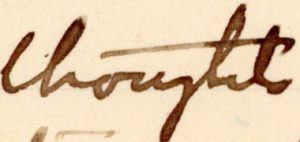
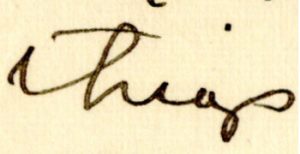
There was also a minor challenge telling some letters apart, as a lot of Homer’s lower-case letters, like “r” “n” “s” and “e” “o” “a” “c” all look very similar.
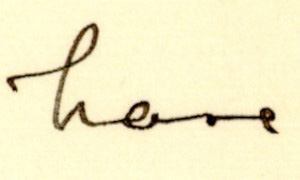
Besides individual letters, we were also identifying Homer’s misspellings. Some examples include “perseption” and “intrest”.

It is important to note however, that the most common spellings of words are in constant change. Homer’s separation of compound words for instance, like “per cent”, “some thing”, and “forth right”, might have appeared more regular to an early 20th century reader – even if they look slightly strange to us. Slang, idioms, and abbreviations also evolve over time. “Bobbery” and “sq” are two interesting examples found within Homer’s vocab.
“Bobbery” is British slang which has an unclear origin, making it a bit difficult to track. Possible etymological origins connect it to 18th century British thieves cant, a coded language associated with criminals. Regardless, the meaning of the word is defined as “a noisy commotion”. It seems like one of the ways that Homer used the term was to describe a stomach-ache!

As for what “sq” means, we can use the context of the original sentence to determine what it means. Originally discussing payment, we can deduce it means “square” as in “square with you”. An idiom meaning to “settle a debt”, it originates from the use of “square” as “honest and upstanding”. The jazz artists of the 1940s flipped the meaning of the word into “uncool” – possibly as a way to refer to someone unable to perform outside of a conventional four-beat rhythm.

The uniqueness of Homer’s handwriting is one of the aspects that makes transcription both enjoyable and challenging. It certainly gives us a sense of Homer’s personality. If you are interested in reading Homer’s words for yourself, our digital letter archive is available to browse through our Online Collections at https://homerwatson.catalogaccess.com/home, or by clicking the “Explore our Collection” link on the main page of our website.
To wrap up this exploration of Homer’s “Homerisms”, we thought it would be appropriate to end with the artist’s favoured sign off:
Believe me to be sincerely yours,
Homer Watson.

